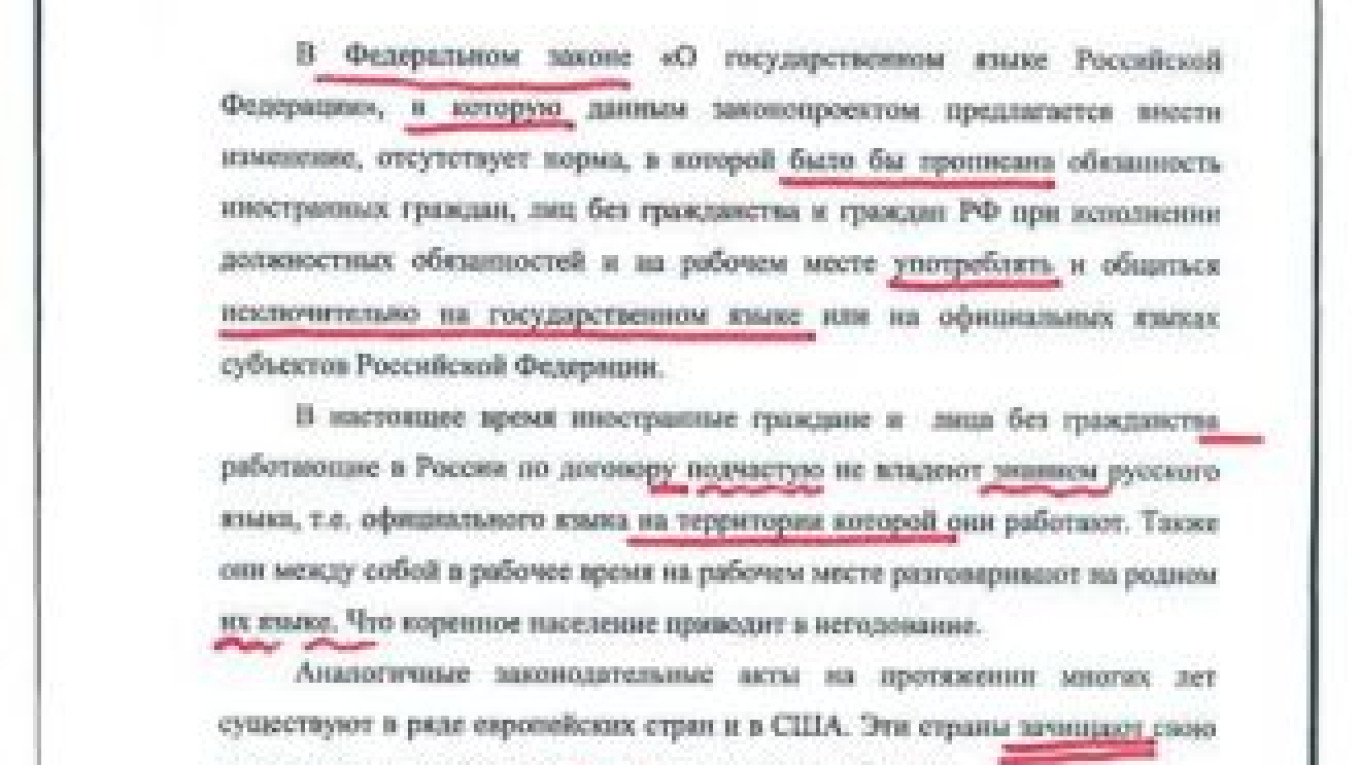The authors of a bill that would ban foreigners from speaking their native languages at work have made nearly two dozen linguistic errors in a one-page proposal submitted to the State Duma.
Two lawmakers from the Liberal Democratic Party said in an explanatory note accompanying the bill — submitted on Thursday and published on the Duma website — that foreign workers who come to Russia often don't speak Russian well enough and communicate in their native languages at work, causing "infuriation" among the native population.
The note, running a little over one page and containing 244 words, had about 20 syntactic, stylistic and punctuation errors, Lenta.ru reported Friday. Some of the sentences were completely nonsensical because of the grammatical mistakes.
The authors of the bill are lawmakers Yelena Afanasyeva, a former education minister for the Kaliningrad region, and Yan Zelinsky, a law school graduate and holder of the "Distinguished lawyer of the Omsk region" medal.
The proposed amendments to Russia's law on official language would require foreign employees to speak only Russian or the official language of the region in which they work.
The authors said the bill mirrored similar laws in Europe and the U.S. However, the U.S. has no official language at federal level. Government documents are routinely issued in several languages — including Spanish, Chinese and Russian — in a number of states with large immigrant populations.
In the mid-2000s, the Salvation Army tried to force its staff to become fluent in English, but the policy was abandoned after a federal law enforcement agency sued. A few schools and colleges, mostly in predominantly conservative southern U.S. states, also have tried banning Spanish from their campuses, prompting a flurry of civil rights lawsuits.
A Message from The Moscow Times:
Dear readers,
We are facing unprecedented challenges. Russia's Prosecutor General's Office has designated The Moscow Times as an "undesirable" organization, criminalizing our work and putting our staff at risk of prosecution. This follows our earlier unjust labeling as a "foreign agent."
These actions are direct attempts to silence independent journalism in Russia. The authorities claim our work "discredits the decisions of the Russian leadership." We see things differently: we strive to provide accurate, unbiased reporting on Russia.
We, the journalists of The Moscow Times, refuse to be silenced. But to continue our work, we need your help.
Your support, no matter how small, makes a world of difference. If you can, please support us monthly starting from just $2. It's quick to set up, and every contribution makes a significant impact.
By supporting The Moscow Times, you're defending open, independent journalism in the face of repression. Thank you for standing with us.
Remind me later.


